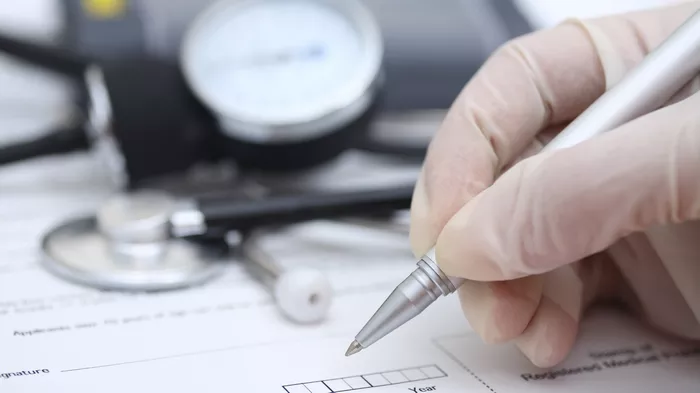Securing a green card, granting permanent residency in the United States, is a significant milestone for immigrants. However, the journey towards obtaining this privilege involves navigating a series of legal and medical requirements. Among these, medical examinations play a crucial role, ensuring that applicants meet health standards set by the U.S. Citizenship and Immigration Services (USCIS). Understanding the intricacies of these medical tests is paramount for a successful green card application process.
The Importance of Medical Examinations in the Green Card Application Process
Medical examinations are an essential component of the green card application process, serving to safeguard public health and ensure that immigrants entering the United States do not pose a risk of spreading communicable diseases. These examinations aim to detect and prevent the entry of individuals with medical conditions that may endanger public health or become a burden on the U.S. healthcare system.
The medical examination requirement stems from the Immigration and Nationality Act (INA) and its implementing regulations. According to the INA, individuals seeking adjustment of status to that of a lawful permanent resident (LPR) are required to undergo a medical examination conducted by a designated civil surgeon approved by USCIS.
Understanding the Medical Examination Process
The medical examination for green card applicants encompasses a comprehensive assessment of an individual’s physical and mental health. It is conducted by a designated civil surgeon who follows specific guidelines established by USCIS. While the process may vary slightly depending on the country of origin and individual circumstances, certain standard procedures are universally applied.
Scheduling the Examination: Upon receiving instructions from USCIS, applicants must schedule their medical examination with a designated civil surgeon. It is essential to choose a USCIS-approved physician to ensure compliance with immigration requirements.
Medical History Review: During the examination, the civil surgeon will review the applicant’s medical history, including any previous illnesses, surgeries, or ongoing medical conditions. It is crucial to provide accurate and detailed information to facilitate the evaluation process.
Physical Examination: A thorough physical examination is conducted to assess the applicant’s overall health status. This includes vital signs measurement, examination of major organ systems, and evaluation for any visible signs of infectious diseases or physical abnormalities.
Vaccination Review: USCIS requires certain vaccinations to be up-to-date for green card applicants. The civil surgeon will review the applicant’s vaccination records and administer any missing vaccines, if necessary, to ensure compliance with immigration requirements.
Tuberculosis (TB) Screening: TB screening is a mandatory component of the medical examination for green card applicants. This typically involves a tuberculin skin test (TST) or interferon-gamma release assay (IGRA) to detect latent TB infection. If the initial screening results are positive, further evaluation, including chest X-rays and sputum tests, may be required.
Laboratory Tests: Blood and urine samples may be collected for laboratory testing to screen for infectious diseases such as syphilis, HIV/AIDS, and other communicable diseases specified by USCIS.
Mental Health Evaluation: In addition to the physical examination, applicants are also evaluated for mental health conditions that may affect their eligibility for a green card. The civil surgeon assesses the applicant’s mental health status and may refer them for further psychiatric evaluation if necessary.
Documentation and Form Completion: Upon completion of the medical examination, the civil surgeon provides the applicant with a completed Form I-693, Report of Medical Examination and Vaccination Record. This form must be submitted to USCIS as part of the green card application package.
Common Medical Issues Encountered During Examinations
While most green card applicants pass their medical examinations without complications, certain medical conditions may pose challenges to eligibility. Some of the common issues encountered during medical examinations include:
Communicable Diseases: Applicants diagnosed with certain communicable diseases, such as active tuberculosis or HIV/AIDS, may be deemed inadmissible to the United States. However, waivers may be available in certain circumstances, particularly for HIV/AIDS.
Vaccination Deficiencies: Failure to meet the required vaccination standards specified by USCIS can result in delays or denials of green card applications. It is essential for applicants to ensure that their vaccination records are up-to-date and compliant with immigration requirements.
Mental Health Conditions: Applicants with certain mental health conditions that pose a threat to public safety or welfare may be deemed inadmissible. However, not all mental health conditions automatically disqualify an individual from obtaining a green card, and each case is evaluated on its merits.
Drug Abuse or Addiction: Applicants with a history of drug abuse or addiction may face challenges in obtaining a green card, particularly if they are deemed to be a current drug user or pose a risk of relapse.
Physical Disabilities: While having a physical disability does not necessarily disqualify an individual from obtaining a green card, USCIS may assess whether the disability would result in the applicant becoming a public charge or pose a threat to public health or safety.
Conclusion
Medical examinations are a vital aspect of the green card application process, ensuring that immigrants entering the United States meet health standards set by USCIS. By understanding the requirements and procedures involved in the medical examination process, applicants can navigate this aspect of the green card application with confidence. Seeking guidance from experienced immigration professionals and ensuring compliance with all medical requirements can greatly facilitate the process and increase the likelihood of a successful outcome. Ultimately, obtaining a green card opens doors to new opportunities and represents a significant step towards achieving the American dream for immigrants around the world.


